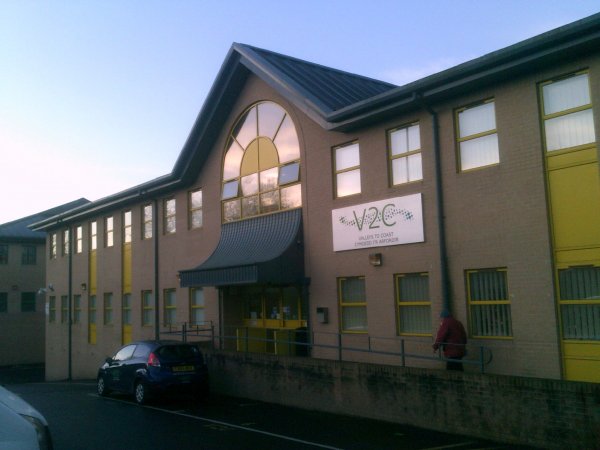Nov 11th 2020, 15:52
Blog 11th November 2020
In this blog I consider reports by the Royal Institute of British Architects and Community Housing Cymru that both make the case for affordable housing. I also list our webinars.
The Royal Institute of British Architects has published an interesting report entitled ‘Homes for All’ and subtitled ‘Putting Council Housing at the heart of the local recovery’. The report states that:
“England may be on the cusp of a new era of public sector housebuilding. For the first time in decades, councils looking to build new homes have funds available.”
The report examines why housing output continues to fall far below the government’s 300,000 a year target and explains why too many of those new homes do not meet the quality, safety, or sustainability targets that they need to. It concludes that the evidence points to a broken housing market; and that fighting the climate emergency, tackling the housing crisis and ensuring that people are safe in their own homes will not happen unless we acknowledge that business as usual won’t work.
The Royal Institute of British Architects believe that the solutions are clear: Councils need to get building again and to do so in a way that raises standards of design, quality, and sustainability across the built environment. The report examines the current state of play; exploring the challenges and opportunities that have faced those that have already begun building and using the early successes in this new period of council house building to establish a blueprint for how the public sector can build quality housing at scale.
The report also looks at the impacts and possible solutions to the problem of poor procurement practices. It sets out why they believe that good procurement will play a major role in improving the quality of new homes and why the public sector needs to recognise that they have a bigger role to play in driving quality, safety and sustainability. They make serious criticisms of public procurement in Britain. At a time when public recognition of the importance of long-term sustainability is growing, they argue that the lack of progress in addressing the impact of our homes on the environment stands out as an embarrassing collective failure.
The report profiles local authorities that are leading the way when it comes to raising sustainability standards in housing – and identifies the long-term benefits that a more joined-up approach to value-for-money can bring. It also addresses the barriers to speeding up the delivery of new council housing. It is almost forty years since local councils made a significant contribution to the number of new homes built. While some of the financial and legal barriers to development have been removed, the lack of autonomy granted to local government remains a major challenge. From a lack of powers to raise or borrow money to continued cuts in central funding, local government cannot be expected to rise to the challenge without a recognition from Whitehall that change is necessary.

Leeds Civic Hall
The report cites Leeds City Council, where I used to work, as an example of good practice. The Council has set out ambitions to build 300 new council homes per year over the next five years. They have already added up to 1,000 affordable units to the housing stock through a variety on means, including directly commissioning new build housing, funding homes through a Private Finance Initiative programme, as well as bringing empty homes back into use. Affordable housing in Leeds is linked to local incomes rather than the national formula that is linked to market rent. The 1,500 homes to be built over the next five years will be delivered through the council’s housing revenue account. Leeds also loses hundreds of its social housing stock every year to Right to Buy so is trying to invest the receipts into its housebuilding programme within the timeframe allowed before they are lost. Local authority right to buy receipts are sent back to government if not spent within three years.
This is a thoughtful report that deserves to be considered seriously by the Ministry for Housing, Communities & Local Government.
To view or download a copy of the report, please click here.
Community Housing Cymru has published its manifesto ahead of next May’s Welsh government election and is calling on the next Welsh government to invest £1.5billion in 20,000 new energy-efficient social homes over the next five years; and £4.0billion in a ten year retrofitting stimulus package, to be backed by a mix of public and private funding.
They say that their proposals would support a further 20,000 jobs and 6,000 training opportunities across the wider economy; provide a £6billion economic boost to communities, while upgrading homes would lead to 39% fewer hospital admissions for circulation and lung conditions.
Previous research by Community Housing Cymru has shown that poor housing costs the National Health Service in Wales £95million each year in treatment costs, while 155,000 households in Wales live in fuel poverty.

The offices of Valleys to Coast Housing Association in Bridgend
Stuart Ropke, Chief Executive of Community Housing Cymru, told ‘Inside Housing’ that:
“The forthcoming election gives us all an opportunity to define Wales’ path out of the challenges that the pandemic has posed, and its result has the potential to plot a course to prosperity and health for the next generation. Ahead of launching the Home manifesto, we engaged with hundreds of colleagues from housing associations alongside almost 100 partners from the public, private and third sectors, and we want to see that pan-Wales partnership work continue beyond the election next year. We are calling for a balanced investment programme from the next Welsh government, that makes every pound work hard to provide an economic boost, as well as benefiting the health and well-being of the whole nation and future generations. We are serious about using our unique position to grow prosperous, healthy, and connected places and this is why we have made some important commitments in the manifesto to work with the next Welsh government. Now is the time to work together to make it happen.”
It appears to me that Community Housing Cymru are showing a capacity for joined-up thinking that is often sadly lacking in British government institutions.
Community Housing Cymru is an ‘AWICS’ client. For example, we recently provided their members with online training in service charges.
To view or download a copy of the report, please click here.
We will be holding webinars from November 2020 to January 2021 including:
For further information or to make a booking, please click here.